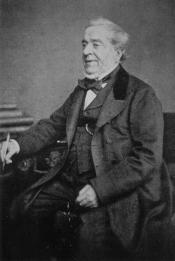Your diet is a bank account. Good food choices are good investments.
Bethenny Frankel, reality T.V. personality and entrepreneur

Nice sentence, isn’t it? But you may also say a well-loaded bank account may ensure you eat well and have a balanced healthy diet. How about not having a well-loaded bank account? Does that mean?.. Well not necessarily. As an average person who earns enough to visit the supermarket at least once a week you can have the right diet for yourself. But anyways you may also need to get help from professionals to send you on the right track. In this website I will try my best to give you as much information as possible to promote good health and fitness. Let’s start from the very basic:
Nice sentence, isn’t it? But you may also say a well-loaded bank account may ensure you eat well and have a balanced healthy diet. How about not having a well-loaded bank account? Does that mean?.. Well not necessarily. As an average person who earns enough to visit the supermarket at least once a week you can have the right diet for yourself. But anyways you may also need to get help from professionals to send you on the right track. In this website I will try my best to give you as much information as possible to promote good health and fitness. Let’s start from the very basic:
What is a Diet?
According to Cambridge dictionary a diet is the food or drink usually eaten or drunk by a person or group. It also means an eating plan in which someone eats less food or only particular types of food, because they want to become thinner or for medical reasons.
The word diet comes from the ancient Greek word diaita which encompassed an entire lifestyle including Food, Drink, sleep and Exercise. Hold on here! These four elements of life are very important, and they are my focus on this website. Let’s continue on the history:
Well ancient Greeks believed if you had a healthy body, you would also have a healthy mind. Being overweight was not only ugly back then but also a sign of mental unbalance.
Hippocrates, a Greek physician who lived around 400 BC, believed fat people suffered from unhealthy sleep, aches, pains, flatulence, and constipation, and recommended that they follow a strict diet, increase their exercise, and vomit.
I am not going to make you bored by telling you who went on the world’s first liquid diet or wrote the world’s first diet book but it is interesting to know that the first popular dieting was Banting. It was named after William Banting. He was a famous English undertaker. Formerly obese, he was the first person who popularized a weight loss diet based on limiting the intake of carbohydrates, especially those of starchy or sugary nature. In 1963 Banting wrote a booklet called Letter on Corpulence, Addressed to the Public which contained the particular plan for the diet he followed. Banting accounted all of his unsuccessful fasts, diets, spa and exercise regimens in his past. His own diet was four meals per day, consisting of meat, greens, fruits, and dry wine. The emphasis was on avoiding sugar, saccharine matter, starch, beer, milk and butter. Banting’s pamphlet was popular for years to come, and would be used as a model for modern diets.

iamge from Wikipedia
Banting’s booklet remains in print as of 2007, and is still available on-line here:
It was estimated that over 1000 weight loss diets have been developed up to 2014.
But as you see in the case of William Banting diet many of the diets developed are based on restricting certain types of food. For example, low-fat diets involve the reduction of the percentage of fat in one’s diet, low-carbohydrate diets restrict intake of carbohydrates and are relatively high in protein and fats. Low- calorie diets usually involve an energy deficit of 500-1000 calories per day which may result in a 0.5 to 1 kilogram weight loss per week. There are even fasting or intermittent fasting diets which promote intentional long-time interval between meals. There are all sorts of diets out there waiting for us to try but which one is the right one for you?
That is where knowledge and expertise come in handy. You don’t want to have eating disorders or develop a health problem by just risking to try a diet. Best advice is always consult with your doctor and a professional dietician.
Eat Healthy, Live Longer!